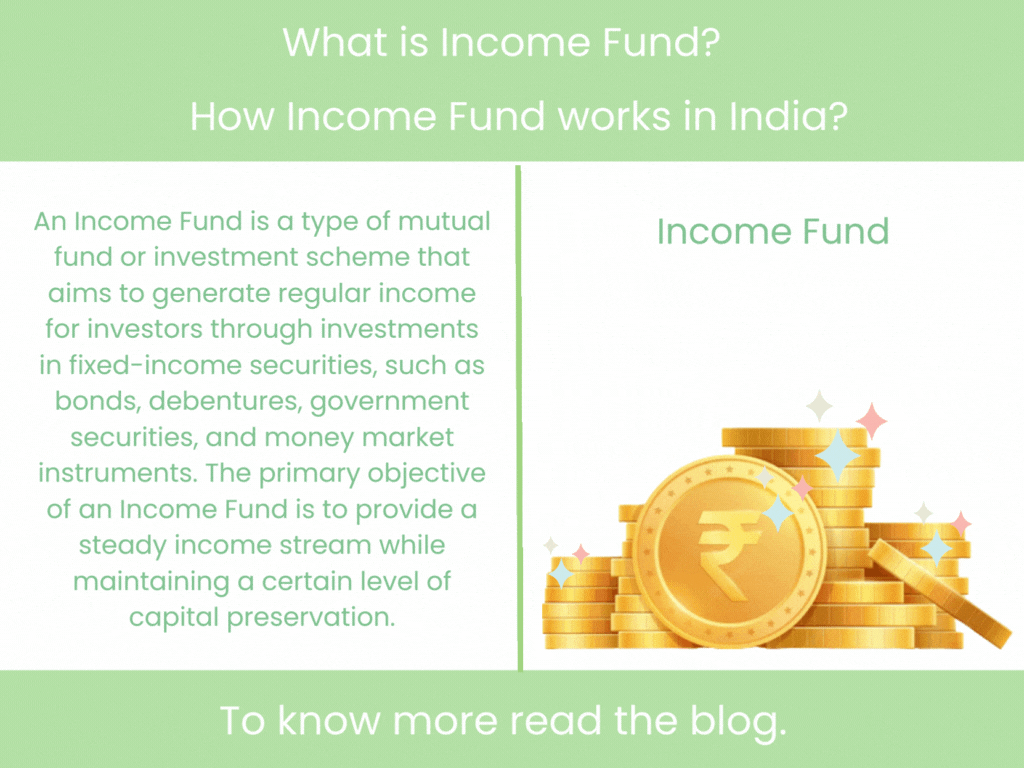What is Income Fund? How Income Fund works in India?
An Income Fund is a type of mutual fund or investment scheme that aims to generate regular income for investors through investments in fixed-income securities, such as bonds, debentures, government securities, and money market instruments. The primary objective of an Income Fund is to provide a steady income stream while maintaining a certain level of capital preservation.
Here's how an Income Fund works in India:
Portfolio Composition: The fund manager of an Income Fund in India constructs a portfolio of fixed-income securities, with a focus on generating income. The portfolio may include a mix of government bonds, corporate bonds, money market instruments, and other debt securities. The manager considers factors such as credit quality, maturity, interest rate risk, and liquidity while selecting securities.
Income Generation: The primary source of income for an Income Fund is the interest earned on the fixed-income securities held in the portfolio. The interest income received from the underlying securities is collected by the fund and distributed to investors in the form of periodic dividends or interest payments.
Capital Appreciation or Depreciation: While the primary focus of an Income Fund is income generation, the value of the fixed-income securities in the portfolio can still fluctuate based on changes in interest rates, credit quality, and market conditions. As a result, there can be capital appreciation or depreciation of the fund's net asset value (NAV) over time.
Risk and Return: Income Funds typically carry varying degrees of risk depending on the composition of the portfolio. Higher-yielding bonds or lower-rated securities may offer higher income potential but come with increased credit risk. Conversely, more conservative Income Funds may prioritize investments in highly rated securities, resulting in relatively lower yields but lower credit risk.
Dividends and Reinvestment: Income Funds in India may distribute dividends to investors on a regular basis. Investors can choose to reinvest the dividends by purchasing additional units of the fund or receive the dividends as cash payments. The decision to reinvest or receive cash is typically left to the investor's choice.
Expense Ratio and Fees: Income Funds charge an expense ratio, which includes management fees and other expenses associated with managing the fund. The expense ratio is disclosed in the fund's offer document and impacts the overall returns received by investors.
Income Funds in India are regulated by the Securities and Exchange Board of India (SEBI). SEBI sets guidelines and regulations to ensure investor protection, transparency, and fair practices for Income Funds.
Before investing in an Income Fund in India, it's important to carefully consider factors such as the fund's investment objectives, historical performance, expense ratio, credit quality of the portfolio, liquidity, and the reputation and track record of the fund house and manager. It's advisable to review the fund's offer document and consult with a financial advisor to assess suitability based on individual investment goals and risk tolerance.


